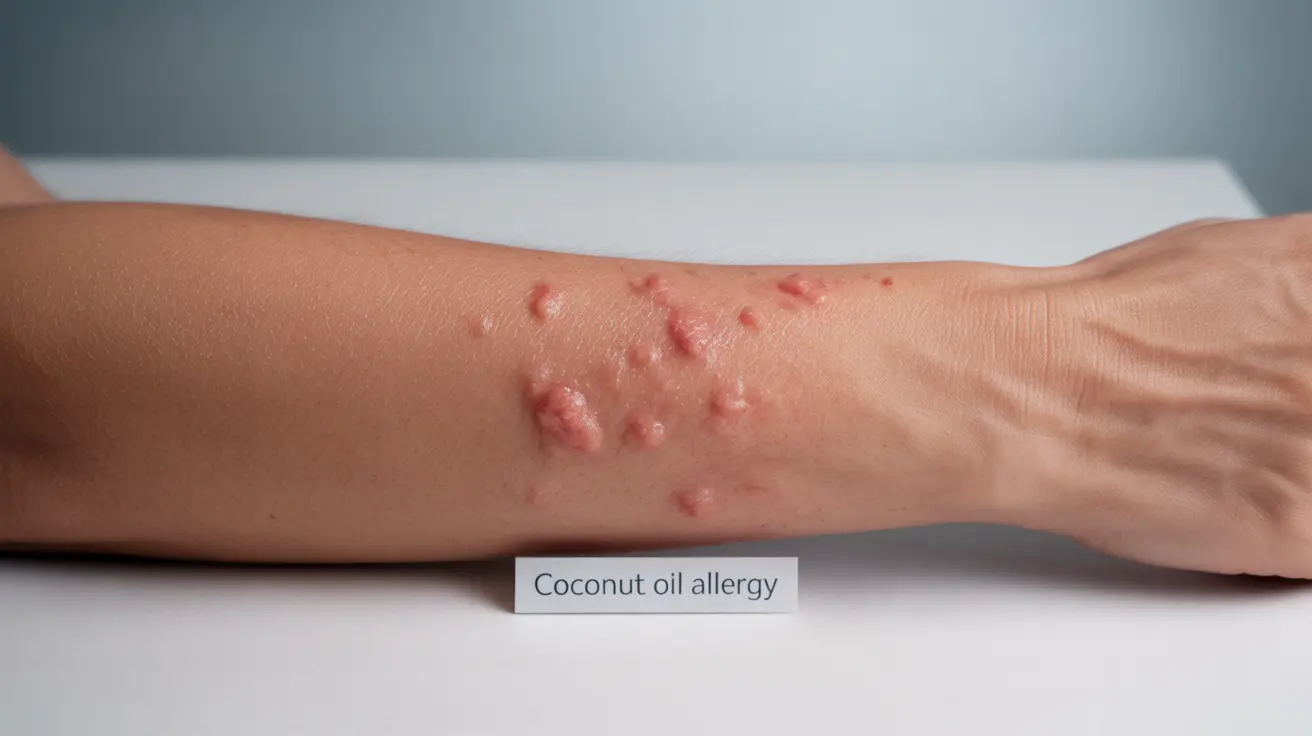A coconut oil allergy, while relatively rare, can cause significant discomfort and concern for those affected. Understanding this condition is crucial for proper diagnosis, management, and prevention of allergic reactions. This comprehensive guide will help you identify symptoms, understand diagnosis methods, and learn about treatment options.
Whether you're experiencing symptoms yourself or concerned about a potential allergic reaction, it's essential to recognize that coconut oil allergies can manifest differently in different individuals. Let's explore this topic in detail to help you make informed decisions about your health.
Understanding Coconut Oil Allergies
A coconut oil allergy occurs when your immune system mistakenly identifies proteins in coconut oil as harmful substances, triggering an allergic response. This reaction can range from mild irritation to severe symptoms requiring immediate medical attention.
Common Symptoms and Signs
Allergic reactions to coconut oil typically manifest through various symptoms, which can appear within minutes to several hours after exposure:
- Skin reactions (hives, rashes, or eczema)
- Itching or swelling around the mouth or throat
- Digestive issues (nausea, vomiting, or diarrhea)
- Respiratory symptoms (wheezing or difficulty breathing)
- Headaches or dizziness
Diagnosis Methods
Healthcare providers use several approaches to diagnose a coconut oil allergy:
Skin Prick Testing
This common diagnostic tool involves placing a small amount of coconut oil extract on the skin and pricking the surface to observe any reactions.
Blood Tests
Specific IgE blood tests can measure your immune system's response to coconut oil proteins.
Oral Food Challenge
Under medical supervision, you may be asked to consume small amounts of coconut oil to monitor for reactions.
Treatment and Management
Managing a coconut oil allergy primarily involves avoiding exposure and being prepared for potential reactions:
- Carefully reading product labels
- Carrying antihistamines or prescribed medication
- Wearing medical alert jewelry
- Having an emergency action plan
- Consulting with an allergist for personalized advice
Products to Avoid
Coconut oil can be found in numerous products beyond food items:
- Cosmetics and skincare products
- Hair care products
- Certain medications
- Natural cleaning products
- Alternative health supplements
Frequently Asked Questions
What are the common symptoms of an allergy to coconut oil? Common symptoms include skin reactions like hives or rashes, itching, swelling, digestive issues, respiratory problems, and in severe cases, anaphylaxis.
How is a coconut oil allergy diagnosed and treated? Diagnosis typically involves skin prick tests, blood tests, or oral food challenges. Treatment focuses on avoiding coconut oil and managing symptoms with antihistamines or prescribed medications.
Can people with tree nut allergies also be allergic to coconut oil? While coconuts are technically not tree nuts, some people with tree nut allergies may also react to coconut oil. It's important to consult with an allergist for individual assessment.
What foods and products should I avoid if I have a coconut oil allergy? Avoid foods containing coconut oil, certain cosmetics, hair care products, natural cleaning products, and check labels carefully for coconut-derived ingredients.
Is it possible to have a severe allergic reaction like anaphylaxis from coconut oil? Yes, while rare, severe allergic reactions including anaphylaxis are possible with coconut oil exposure. Those with severe allergies should carry emergency medication and seek immediate medical attention if symptoms occur.
If you suspect you have a coconut oil allergy, consult with a healthcare provider or allergist for proper diagnosis and treatment planning. They can help you develop a comprehensive management strategy tailored to your specific needs.




